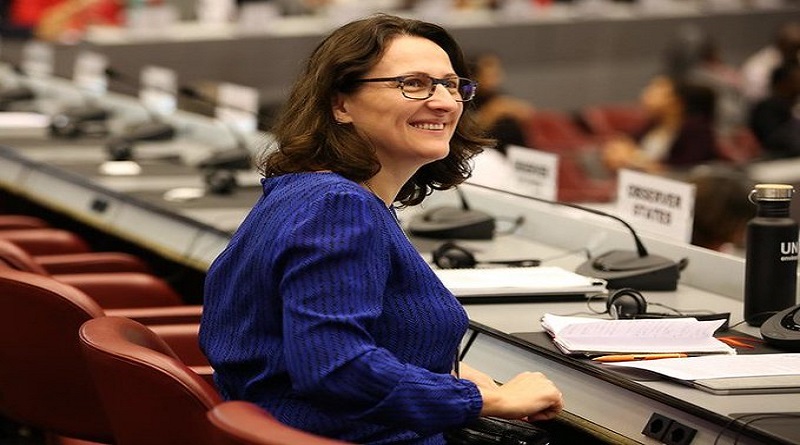UNEP celebrates five years of Minamata Convention on Mercury
The United Nations Environment Programme (UNEP) on Wednesday 16 August 2022 celebrated the fifth year that the Minamata Convention on Mercury entered into force. The convention entered into force on 16 August 2017.
Although the convention itself is young, it builds on a long history of scientific efforts to understand and manage the risk of mercury, a toxic substance.
Mercury’s toxicity has long been known. It devastated the fishing villages in Minamata Bay, Japan, in the middle of the 20th century. Governments around the world reacted with domestic regulations on mercury pollution. In 1990, researchers organized the first meeting of the International Conference on Mercury as a Global Pollutant (ICMGP). ICMGP has organized 15 meetings and has published synthesis papers as a scientific input to policy making.
“Science has been a driving force behind the Minamata Convention,” said Monika Stankiewicz, Executive Secretary of the Minamata Convention.
Governments adopted the convention in 2013, and it entered into force five years ago – on 16 August 2017. The United Nations Environment Programme (UNEP) administers the agreement, which has 137 parties. Its provisions include a ban on new mercury mines and the phase-out of mercury use in a number of products.
The 15th ICMGP was held in July 2022 under the theme “Reducing mercury emissions to achieve a greener world.” This online event, which included leading scientists and young scholars from a range of disciplines, explored the global challenges posed by mercury. “The conference is not only developing further science but also solutions to concretely support parties in implementation,” said Lynwill Martin, ICMGP Chair.
At an ICMGP meeting, Amina Schartup, from the University of California San Diego, reviewed the scientific knowledge on the impact of climate change on mercury pollution. Mercury emissions from forest fires are estimated at around 600 tonnes per year, which is about a quarter of the total mercury emissions produced by human activity, she said. Increases in forest fires due to climate change may raise these emissions by 14 per cent by 2050, compared to 2000.
Deforestation will also affect the mercury cycle. Without the Amazon rainforest, the capturing of atmospheric mercury will decrease from 650 tonnes to 250 tonnes per year. The research announced at this plenary session will be presented in a synthesis paper, to be published in January 2023.
“With the influx of new students and researchers in this field, mercury research is in very good hands and valuable contributions towards various aspects of the Minamata Convention are certain to happen in the near future,” said Martin. The 16th ICMGP will take place form 21- 26 July 2024 in Cape Town, South Africa.
The Conference of the Parties (COP) to the Minamata Convention, at its fourth meeting in March 2022, started a process to evaluate the convention’s effectiveness based on scientific knowledge and information. An Open-Ended Scientific Group was established, consisting of worldwide experts nominated by parties and supported by a broader roster of experts. The group had its first online meeting in June, and started to work towards scientific reports on mercury monitoring and on mercury emissions and releases.
“The establishment of this scientific group was a landmark decision by the COP. This is just one step in the long journey for sound science to inform global policy implementation and evaluation,” said Terry Keating, Co-Chair of the scientific group. He urged scientists to sign up, through governments and other organizations, to the roster of experts contributing their data and expertise to the process.
Claudia Dumitru, COP-5 President, said sound research will be key to implementing the Minamata Convention. “COP has taken important decisions at the past four meetings. The addition of mercury-added products to be phased out under the convention, agreed at COP-4, was based on the scientific, technical and economic information compiled by an expert group.” The process is expected to continue at COP-5, scheduled for October 2023.
The research is part of a broader effort to link science and policy making at the international level. The 5th meeting of the United Nations Environment Assembly held in February and March 2022 agreed to work towards a science policy panel to contribute further to the sound management of chemicals and waste and to prevent pollution. An ad hoc open-ended working group under UNEP is preparing proposals for the science-policy panel with the ambition of completing the work by the end of 2024.
Stankiewicz said she expected the panel to focus on the socio-economic considerations around mercury pollution, and include indigenous peoples and local knowledge in its deliberations.
The Global Environment Facility, which will provide US$265 million to mercury projects between 2022 and 2026 within the 8th replenishment of its fund, also has a science-policy interface mechanism, the Scientific and Technical Advisory Panel. The scientific advice the panel will provide will give strength to the planning, implementation and evaluation of the projects under the mercury portfolio.
Meanwhile, experts preparing for the inter-sessional work towards COP-5 and an expert group on mercury waste are also contributing to the growing body of science on mercury pollution. As well, a new series of the Minamata Online knowledge workshops is being developed to further clarify the Minamata Convention’s provisions, as well as its policy and scientific protocols.




